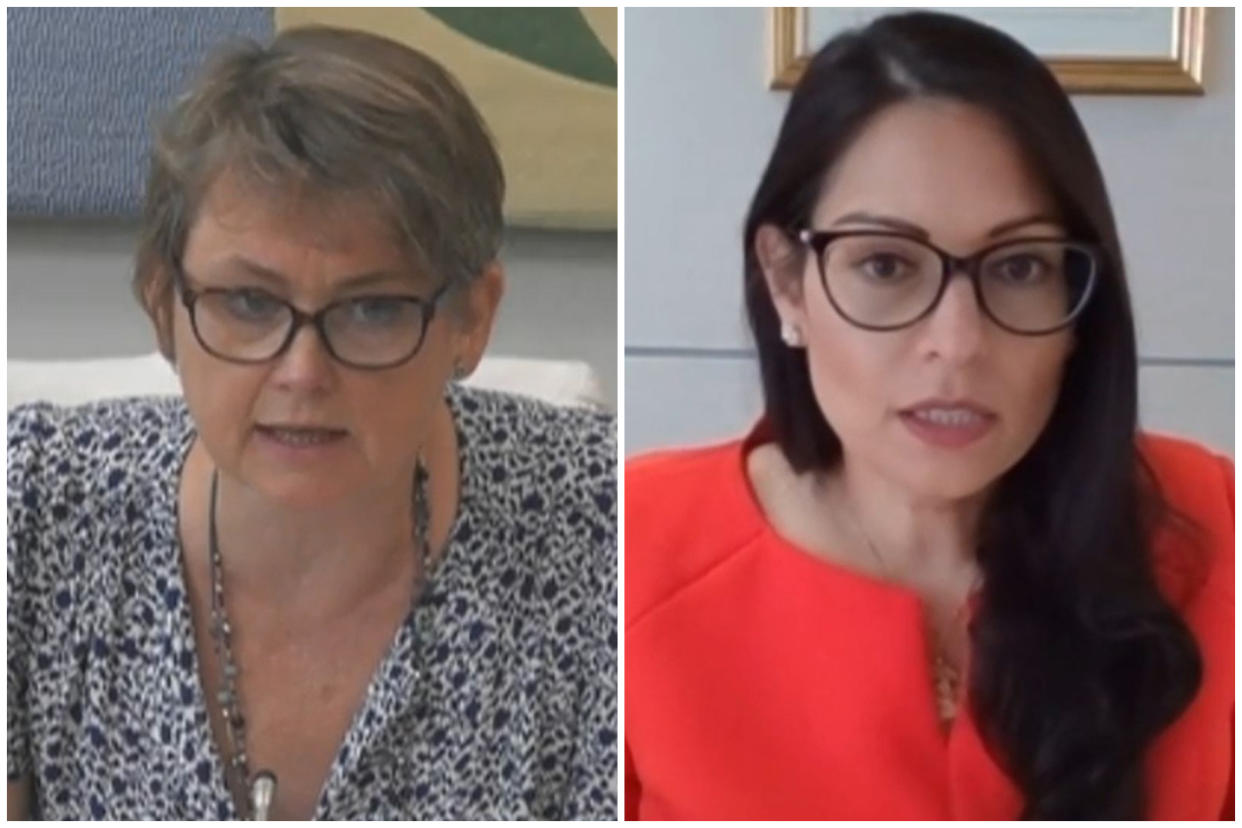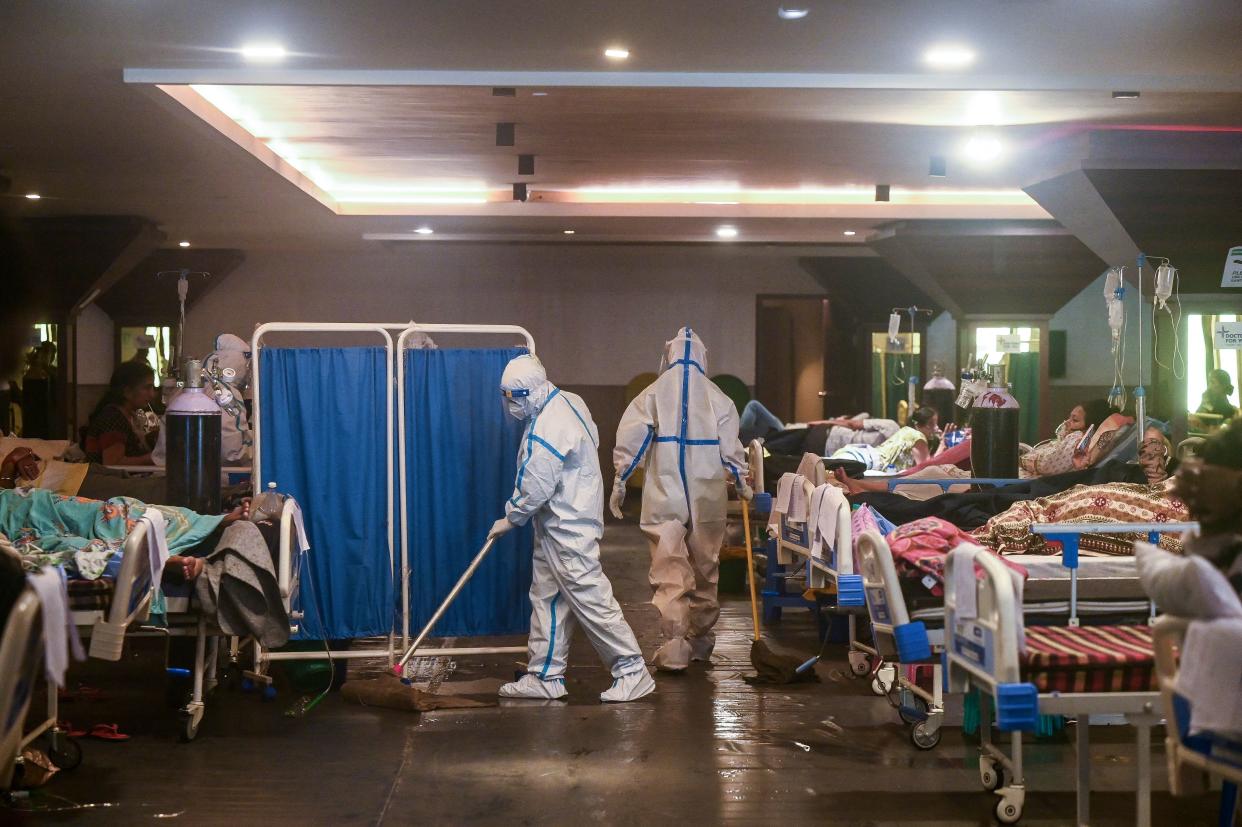MP’s astonished reaction as Priti Patel says Covid variant border policy worked
This is the moment a senior MP reacts with astonishment after home secretary Priti Patel claims the government’s coronavirus variant border policy worked.
Yvette Cooper, chair of the House of Commons home affairs committee, asked: “How can you possibly say it didn’t fail to stop the new variant?”
Patel was facing questions on Wednesday about the Delta variant of the virus, which was first identified in India and became dominant in the UK, sparking the huge third wave of infections.
Labour MP Cooper said the border system “clearly failed”.

Patel defended it, insisting: “It’s important to say the system has not failed. This is a comprehensive system across the whole of government. This isn’t just Border Force and the Home Office.”
Cooper responded: “It clearly did fail, because in many areas of the country we’ve got more cases of the Delta variant than we’ve ever had in any Covid variant at all. So it clearly failed.
“How can you possibly say it didn’t fail to stop the new variant spreading right across the country?”
Cooper questioned whether the government would “react quickly enough” to future new variants which could jeopardise the vaccine programme.
“If you won’t even recognise the system did fail on Delta, it’s very hard to have confidence in it.”
She pointed to the New and Emerging Respiratory Virus Threats Advisory Group (Nervtag) expressing concern on 16 April about the massive rise in cases in India, and that it was only 23 April when it was put on the government’s travel ban “red list”.
Patel defended this, saying: “It is entirely wrong to suggest we delayed putting India on the red list.
“There were other countries put on the red list, including Bangladesh and Pakistan, early in April and that decision was taken on the basis of the positivity rate of people entering the country, and the data that showed the proportion of people testing positive.”

Patel added it was five days after the India travel ban that Public Health England classified it as a “variant under investigation”, and another nine days before it was escalated to a “variant of concern”.
Cooper, who has repeatedly grilled the government over its border policy during the pandemic, responded: “Unfortunately, home secretary, I don’t think there’s anybody in the country who thinks that your border policy worked to prevent the Delta variant spreading right across the country.
“We can see the evidence. It’s therefore quite troubling that you’re saying the policy did work and isn’t being changed in order to react more swiftly.”
Labour leader Sir Keir Starmer has previously labelled the Delta variant the "Johnson variant", accusing Boris Johnson's government of allowing it into the country through a lax border policy.
However, Prof John Edmunds, a Scientific Advisory Group for Emergencies (Sage) member who has been highly critical of Johnson's coronavirus strategies, said in May that he doubted adding India to the red list sooner would have made a difference.
He told the BBC's Andrew Marr Show on 16 May: “I don’t think it would have been avoided, it could have delayed things a little bit."
Prof Sir Peter Horby, chairman of Nervtag, told the same programme on 27 June: "It’s clear that the Delta variant started to transmit within the UK because of introductions from other countries.
“So I think there is a case to be said that that did happen, and stronger border measures may have delayed that – may even have prevented it.
“But there is an obvious trade-off that policymakers and politicians have to make between absolute complete restrictions and stopping various viruses coming in.”


